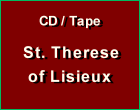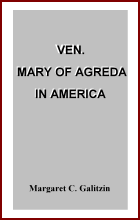Morals
 |
 |
 |
 |
 |
 |
 |
Moral Questions
On the Validity of Civil Marriage
Dear TIA,
I am a fallen Catholic. I cleave to the Faith, but my soul is black as tar. I have spent my twenties living as a man of the world. The only bright spot in my life at the moment is my fiancée, who is neither a Catholic nor baptized but is willing to convert. We have lived in sin for three years. We plan to get married soon, but the burden of my sins grows ever heavier. I feel an overwhelming need to seek out a Mass and live out the rest of my days as a Catholic with my wife, but one part of our engagement has been weighing on my mind.
She was married once in her youth, very briefly, to another non-Catholic by a justice of the peace. The union lasted but a few months, and to my understanding, had neither the intent to produce offspring nor the commitment to be together for life. It ended after a short time, when her husband revealed that he had been unfaithful from the beginning. He ruined her credit by purchasing a car before buying her a bus ticket back to her family. They civilly divorced. This was over ten years ago. That man now has four children with another woman.
I cannot bring this to the annulment factory of the Novus Ordo. Indeed, though I have almost never really lived as a Catholic in my adult life, I have spent a lot of time studying and researching the faith, and I cannot in good conscience take that approach.
My question is, is her previous non-Catholic state marriage an impediment to ours? She has become my heart and soul. We are very close, and the thought of a life without her grieves me deeply. Also, I fear that she may be lost without me. Also, if we are free to marry, where do I even begin to find the Faith in this backward world? Please forgive my rambles. I am torn to my very depths. I thank you humbly for any advice you can offer.
Gratefully yours,
F.G., a conflicted soul.
______________________
TIA responds:
Dear F.G.,
We hope you will return to the practice of the Catholic Religion, convert your fiancée as well, repent for your present/past life and marry in the Catholic Church, which means to receive the indissoluble Sacrament of Matrimony.
As you describe the situation and as far as we know, the previous situation of your non-baptized fiancée, marrying only before a justice of the peace and soon divorcing before the civil law was not a sacrament.
There was, however, a bond that cannot be overlooked. Indeed, canon 1057 § 1 of the Canon Law (1983) says: “The consent of the parties, legitimately manifested between persons qualified by law, makes marriage.” So, there is a natural marriage – not a sacrament – that is being considered here.
Since the divorce was issued also by a civil authority, one could say: If there was not a sacrament, the same authority that made the marriage, unmade it. Therefore, it is void.
The question is not so simple, because the liberalism of the civil authority in this regard has reduced the process of civil divorce to a mere formality. There is nothing but a simulacrum of justice involved: Anyone can get a divorce. So, the annulment of the first bond can be widely contested.
When you present some reasons for the possible annulment of that first contract, you used these words: “The union lasted but a few months, and to my understanding, had neither the intent to produce offspring nor the commitment to be together for life.”
So, the reasons that would annul that first civil marriage are uncertain, you do not have a sure knowledge of them.
Since you want your fiancée to convert and be married in the Catholic Church, you will need to clear the first case in order to receive the true Sacrament of Matrimony. Given the seriousness of the latter, the pastor of the church in which you will marry will have the obligation to dive deeper into that first contract to see if it was valid or not. However, no matter how learned and competent that pastor may be, he will not have the authority to pronounce a final decision. He must rely on a tribunal that has this authority.
In normal times of the Church, the Diocesan tribunals would have the authority to give the last word, since in this case it was apparently just a natural marriage.
You say: “I cannot bring this to the annulment factory of the Novus Ordo.” We understand your repulsion for the progressivist orientation of these tribunals. However, no matter how liberal their present day criteria may be, they are the only tribunals qualified to decide your case. We believe that the Conciliar Church still keeps the authority of the Catholic Church in these matters.
We know of two fraternities of traditionalist priests which, for a while, established de facto parallel tribunals, pretending that they could declare this or that marriage invalid. It was an enormous mistake, which, had it continued, would manifest an indisputable position of schism regarding the power of jurisdiction of the Pope.
The base for this is quite simple: Since the vows of marriage are made before God, only God can undo them. Now then, once the Pope is the Vicar of Christ on earth, only he can decide whether the vows were validly made or not. Given that a Pope does not have time to enter into the details of each case, the Sacra Rota Romana was the tribunal that received the papal-delegated power to conduct these processes. After Vatican II, the Popes also have invested the Diocesan Tribunals with that authority.
We agree that this constitutes a liberalization of the process in order to destroy the seriousness of marriage and facilitate the so-called “Catholic divorce.” However, these are still the only tribunals invested with the authority to decide on the topic.
In conclusion, we recommend you and your fiancée to approach one of these tribunals, honestly explain her case to the officials and, then, wait for their decision. If there will be a liberal sentence, the judges will have to respond for it before God, not you.
We hope this answer will assist you in your needs.
Cordially,
TIA correspondence desk

Posted March 19, 2015
______________________
______________________
 |
 |
 |
 |
 |
 |
 |
 |
 |


